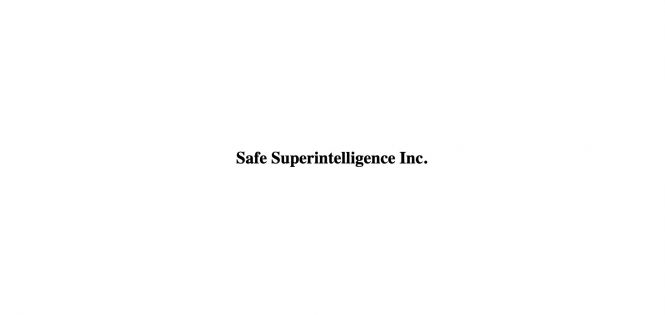 OpenAI's co-founder receives $1 billion for his new startup
OpenAI's co-founder receives $1 billion for his new startup
Safe Superintelligence Inc. (SSI), a startup co-founded by Ilya Sutskever, who’s been OpenAI’s chief scientist until May 2024, has recently raised $1 billion to support its quest for AI that won’t destroy humanity when it gets vastly cleverer than man. The investment comes from Andreessen Horowitz, DST Global, and Sequoia Capital, for the most part; these funds are well-known within the industry and beyond for knowing how to select startups bound to succeed. SSI was incorporated in June 2024, which makes it only three months old by the time it received the enormous round. Is this the largest IT-related single-round venture capital investment ever? And what’s in it for us, the regular users? Let’s dig deeper into the subject.
Who is Ilya Sutskever, and what is Safe Superintelligence?
Ilya Sutskever was born in Nizhny Novgorod, Russia, 37 years ago. He emigrated to Israel at a young age, and later moved to Canada. There, he studied at the University of Toronto. The list of his major accomplishments begins with AlexNet, a groundbreaking convolutional neural network, which he co-invented, and continues with instrumental contributions to the LLMs developed by Google Brain and OpenAI. Being a co-founder of the latter, Ilya left the company in May 2024 after a tumult that had Sam Altman, the CEO, ousted and then reinstated.
In June 2024, Sutskever joined Daniel Gross and Daniel Levy, both AI veterans like Ilya, and the trio incorporated Safe Superintelligence Inc. As the name suggests, they seek to build a powerful artificial intelligence and prioritize its safety for humankind. The move reflects the growing industry concern regarding the risks associated with advanced AI systems, as does the $1 billion investment round.
The said round is among the largest in history for an IT startup, and likely the most significant amount of money ever received by a company that’s only 3 months old. However, it is not the largest single funding event overall. That title goes to the $10 billion investment in OpenAI made by Microsoft. Interestingly, two other major rounds in the industry have happened in the AI domain, too: the $4 billion given to Anthropic and the $1.3 billion transferred to Inflection AI.
What’s in it for us, the regular users?
The team of SSI, currently counting less than a dozen people, claims to pursue no immediate commercial gains, choosing to focus on long-term research and development that, hopefully, will yield a totally benign AI desiring to be of assistance and nothing else. In the recent piece, “Now Google is a monopolist. What are the alternatives?”, we’ve touched upon the actual utility of AI for the masses, and mentioned several search engine alternatives that rely on LLMs to scoop, sum up, and deliver answers to users’ questions. All things considered, SSI brings more competition to the table, so we may expect expansion of the tip of the iceberg – AI-powered services that end users interact with first-hand – and growth of the hidden body thereof, i.e., ubiquitous underlying infrastructure driven by artificial intelligence. With this in mind, it certainly feels better to know that at least one major player on this market prioritizes safety above all else.



